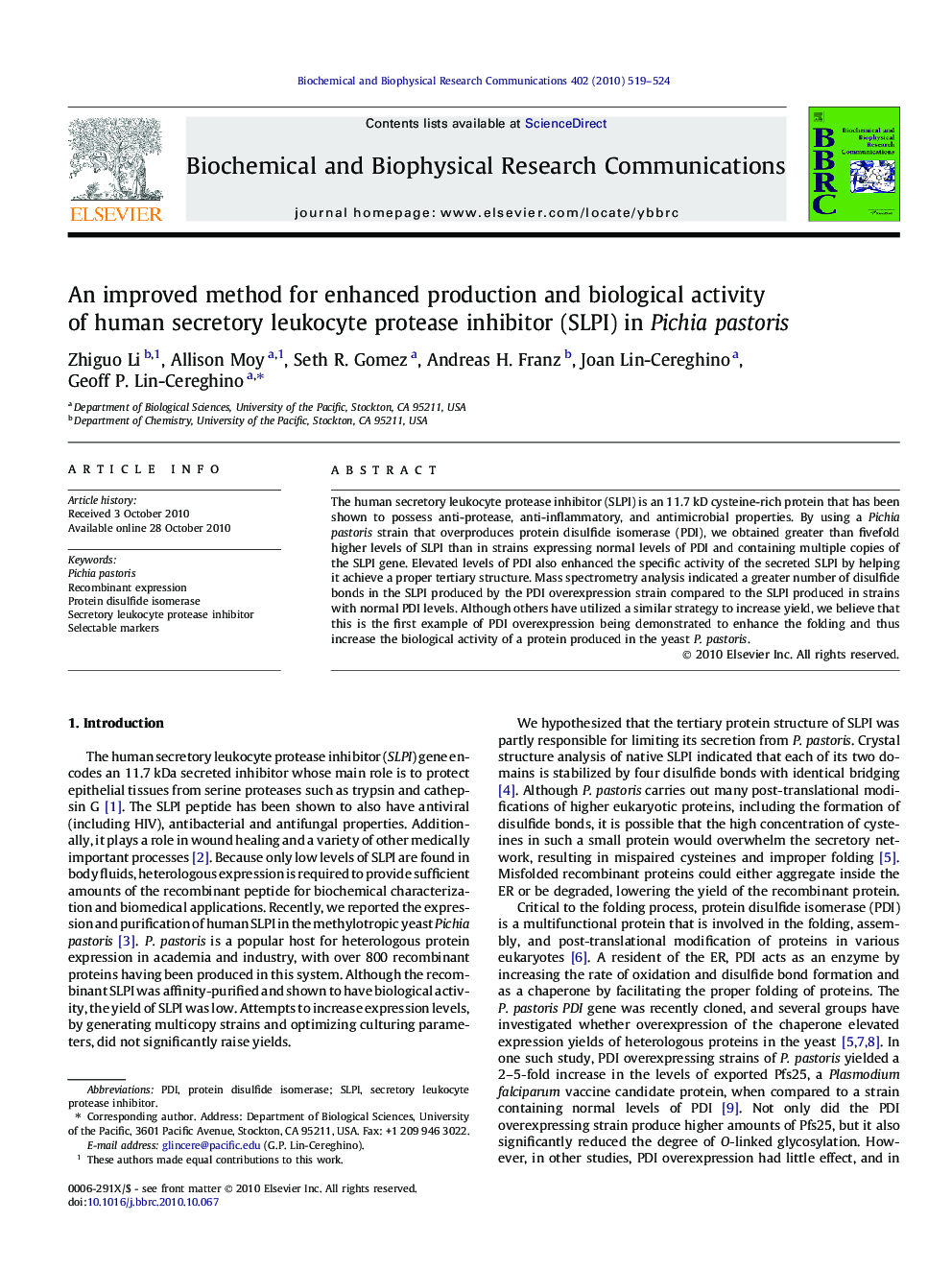| Article ID | Journal | Published Year | Pages | File Type |
|---|---|---|---|---|
| 1931404 | Biochemical and Biophysical Research Communications | 2010 | 6 Pages |
The human secretory leukocyte protease inhibitor (SLPI) is an 11.7 kD cysteine-rich protein that has been shown to possess anti-protease, anti-inflammatory, and antimicrobial properties. By using a Pichia pastoris strain that overproduces protein disulfide isomerase (PDI), we obtained greater than fivefold higher levels of SLPI than in strains expressing normal levels of PDI and containing multiple copies of the SLPI gene. Elevated levels of PDI also enhanced the specific activity of the secreted SLPI by helping it achieve a proper tertiary structure. Mass spectrometry analysis indicated a greater number of disulfide bonds in the SLPI produced by the PDI overexpression strain compared to the SLPI produced in strains with normal PDI levels. Although others have utilized a similar strategy to increase yield, we believe that this is the first example of PDI overexpression being demonstrated to enhance the folding and thus increase the biological activity of a protein produced in the yeast P. pastoris.
Research highlights► PDI overexpression increased SLPI expression 5–8 fold in Pichia pastoris. ► Elevated PDI enhanced the specific activity of the secreted SLPI. ► MALDI TOF showed more complete disulfide bond formation in the SLPI from PDI overexpression strains. ► New G418R vectors were used create single and multicopy SLPI and PDI strains.
